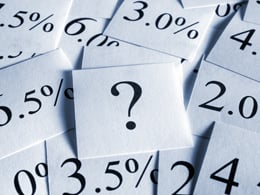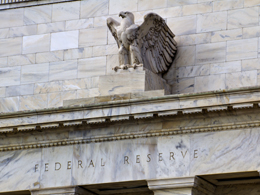I am at the Commonwealth Leaders Conference this week, at one of the most beautiful properties I have ever seen. So, of course, I am sitting in a conference room listening to economic presentations. But I’m okay with that.
One of the great things about conferences like this one is that they offer the opportunity to listen to a group of sponsors present some of their most compelling investing ideas. I heard a very interesting point this morning that I’ve noted previously but not paid sufficient attention to: The return from bonds (in aggregate) is almost always very close to the initial yield.







 All eyes (at least in the economics world) are on Janet Yellen today as she sits down to update Congress on what the Federal Reserve is doing.
All eyes (at least in the economics world) are on Janet Yellen today as she sits down to update Congress on what the Federal Reserve is doing.





